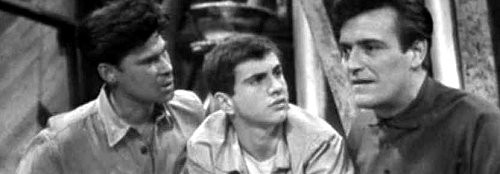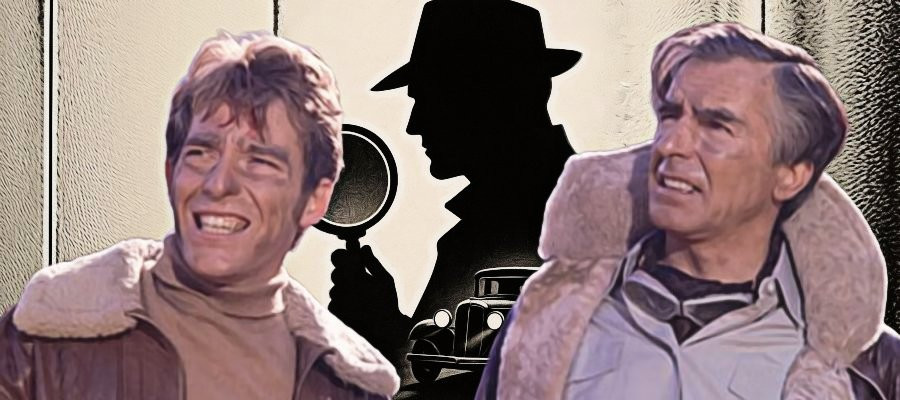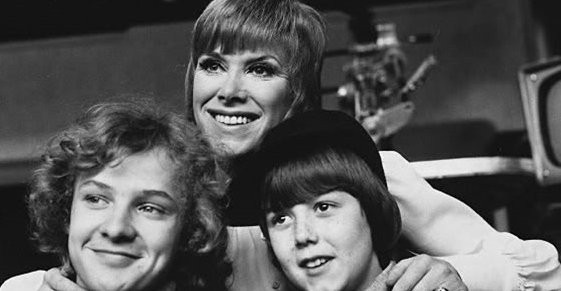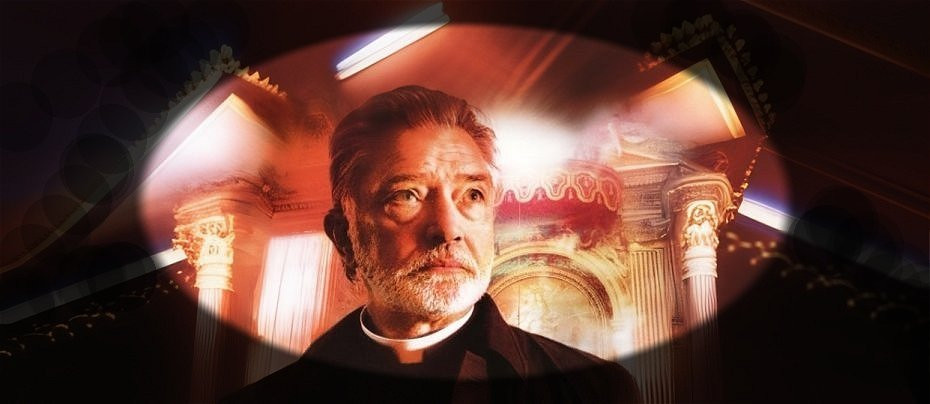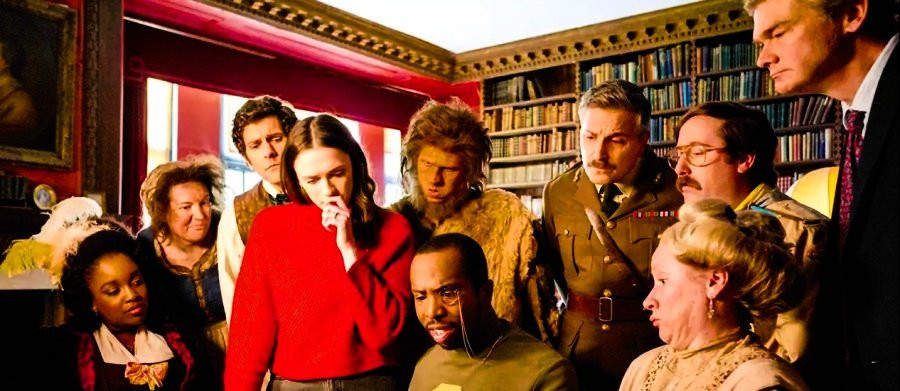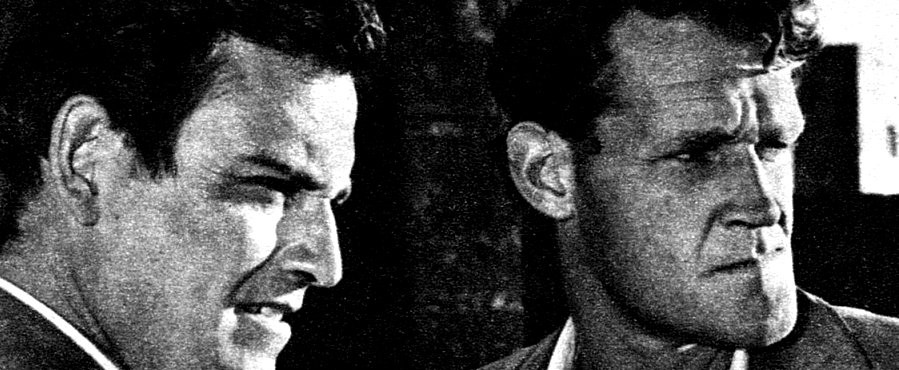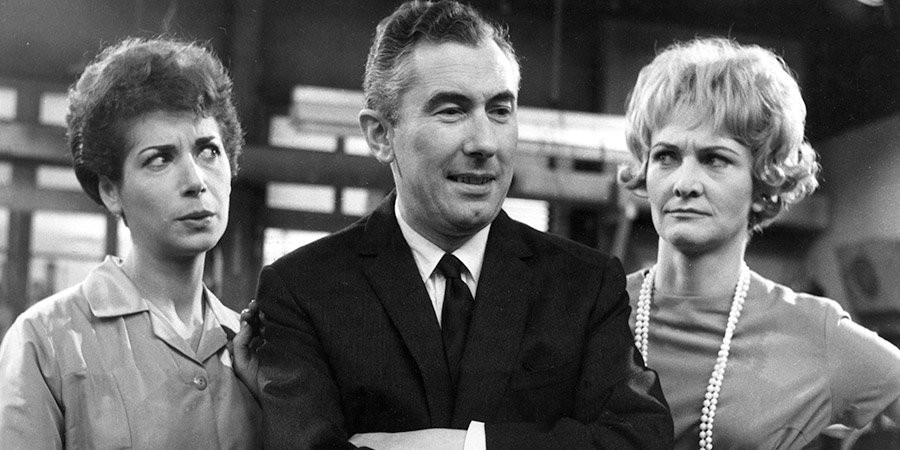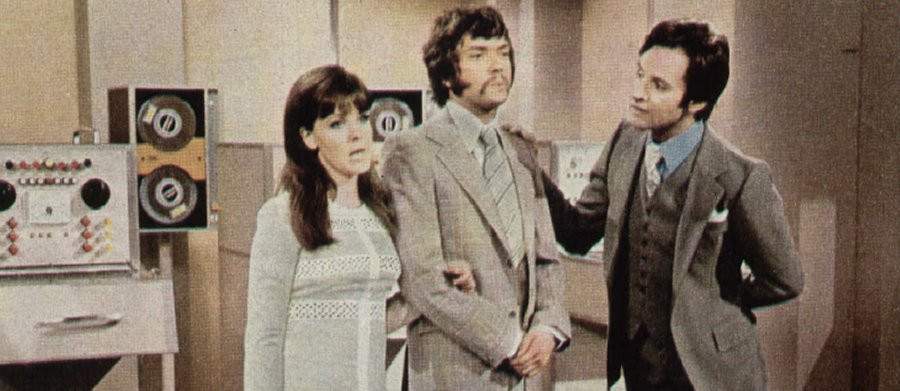
The Mating Machine
1970 - United KingdomIn its ever constant attempt to reproduce the success off the BBC's Comedy Playhouse, ITV (not for the first time - nor for the last), produced seven standalone comedies hoping that one of them at least would turn into a full-blown series. None of them did.
All the individual episodes of The Mating Machine were united by a single theme: Computer dating – or to put it more accurately, having a computer choose your perfect match.
Something that today is very much taken for granted was still very much in its infancy in 1970. The first computer dating experiments began in the USA in the late 1950s, but it wasn’t until 1965 that a computer match algorithm was made available to the public. 'Operation Match' had been developed at Harvard University in 1964 as a social experiment and required participants to answer 150 detailed questions about themselves. In return these perfect match seekers would receive a letter through the post with a computer readout and, something that would set alarm bells ringing today, the name, address and telephone number of their prospective loved one. Remember, at this time there were no computers at home, no internet and no social networking.
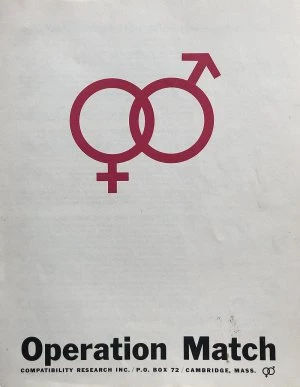
Results were so eagerly awaited that eventually 90,000 student applicants were received. Small fry by today’s standards for an industry that is now worth approximately £2.5 billion ($3.2 billion), but an outstanding number for such an innovative program, and a clear indication of how many people were prepared to give up their personal information in hope of fulfilling their desires to find connections that might have otherwise eluded them.
The inspiration for a situation comedy on computer matching may well have come from a real-life situation in the UK in the late 1960s in which a Wembley man filled in his form, paid his fee and had his requirements fed into a machine with around 30,000 other people who were seeking ideal partners. The computer recommended his perfect match - his ex-wife.
The Mating Machine was produced by Bill Turner who was an experienced producer of comedy having begun his television career in 1959 on Educating Archie before moving on to Ollie and Fred's Five O'Clock Club, Our Man at St. Marks and It's Tommy Cooper. Writers for the series were also vastly experienced and hugely successful in the field of comedy, boasting such luminaries as Galton and Simpson, Donald Churchill, Brian Cooke and Johnnie Mortimer, John Esmonde and Bob Larbey and Graeme Garden and Bill Oddie. Director Howard Ross would go on to On the Buses and Please Sir!
The series also bought together some familiar stars; Sheila Hancock, Miriam Karlin, Norman Bird, Sam Kydd, Norman Rossington, David Lodge, Pauline Collins, William Mervyn and John Savident - all with a good pedigree in comedy, as well as unlikely comedians Martin Shaw, Gerald Flood, Michael Lees and David Suchet. So, all the ingredients were in place for a successful series and the possibility of at least one spin-off. However, unlike Comedy Playhouse, in which the writers were given free rein to come up with their own situations, where The Mating Machine possibly fell down was in the fact that every story revolved around the same central premise.
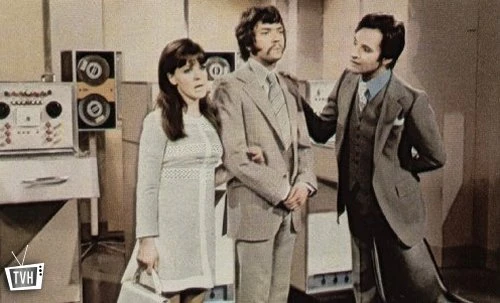
Produced by London Weekend Television, The Mating Machine was broadcast on a Friday evening at in a prime-time slot that should have ensured good viewing figures. The series kicked off with 'Who Sleeps on the Right' written by Esmonde and Larbey and starring Pauline Collins and Martin Shaw as a couple who are paired up by computer and then meet for the first ‘date’ on a cruise.

Miriam Karlin and Norman Bird were paired up for the second episode, 'Flo and Monty and Henry...' by Garden and Oddie in which Karlin is unhappily married to Monty and after not hearing from her husband for two days decides to brighten up her marriage with a lover. She asks the data-date computer to fix her up with "somebody like Steve McQueen". Since McQueen was a truck driver before becoming a star, when she turns up at the at the Kozy Kat Kaffy for the arranged date to meet 'Henry', she is faced with not one suitor but ten of them - all called Henry.
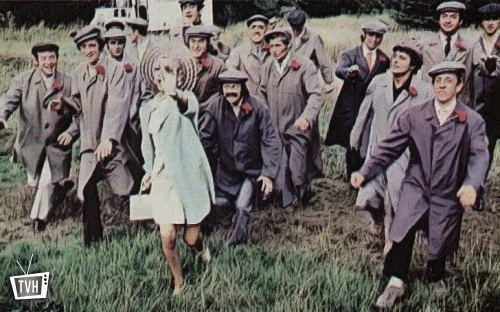
The third story, 'Only Three Can Play' by Cooke and Mortimer stars David Wood, Duncan Lamont and Eleanor Summerfield. Soft lights, sweet music; the stage seems set for a romantic rendezvous. The computer has even booked a table. Ronald (David Wood) turns up with a book on how to handle the fair sex. But the computer hasn't booked a table for two. It's booked a table for three, and the third, Angus (Duncan Lamont) a rugged, aggressive Scot who has just spent four years in an African jungle fighting as a mercenary, doesn’t need a book of instructions.

'All About Little Eve' is the fourth in the series and stars David Lodge and Jane Hylton. The story, by Ken Hoare and Mike Sharland is about ten-year-old Eve, who is a star of numerous television commercials. Her parents are content to live on her earnings but not content with each other. Distressed by her father's loneliness, Eve enrols him in a data-dating bureau. Meanwhile, Mother has also consulted a dating agency.
Sheila Hancock and Norman Rossington were the stars of the fifth story, 'Sealed with a Loving Kiss' by Ray Galton and Alan Simpson. Tarquin is an architect; Michelle is a successful model. The computer arranges for them to meet at Waterloo Station. But how did Freda and Arnold get in on the act?
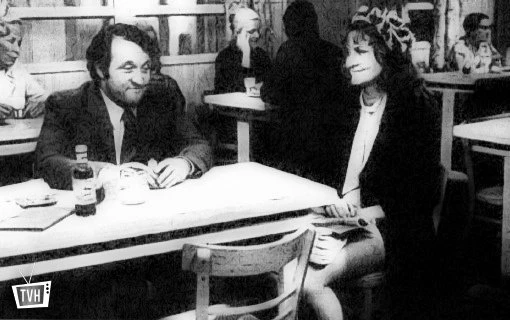
'As the Bishop Said to the Actress' by David Cumming and Derek Collyer stars Gerald Flood, Jan Waters, Ruth Dunning and David Cook. Paul, a personable, good-looking bachelor bishop, is the despair of his chaplain and his housekeeper because of his numerous affairs. So, to find him life's companion, they enrol him with a dating bureau. Choosing an actress, Veronica West, from the three alternatives offered, Paul prepares for a pleasant evening at her flat after dinner.
Veronica, however, is tired of being loved for her body, and realising Paul's mind is not set on classical music and highbrow conversation, the actress decides to teach the episcopate a lesson. This story also afforded Anthony Andrews an early television role.

The seventh and final story in the series starred William Mervyn and Sam Kydd in Donald Churchill's 'Ada's Last Chance'. Daphne Dilke's dating agency is renowned the world over for bringing the most unlikely couples together. But when a computer (ADA) is brought in to take over, things go horribly wrong. Sam Kydd is the computer mechanic brought in to improve ADA's last chance to earn its keep. But the result is positively explosive.
A series of comedy one-offs was a tried and tested recipe for many years on British television, and the practice yielded a tremendous run of successes for a number of writers and performers. Most strikingly with the Comedy Playhouse series which, amongst others, produced Steptoe and Son, Meet the Wife, Till Death Us Do Part, The Liver Birds, and Last of the Summer Wine, and Ronnie Barker’s successful forays into the formula resulted in some of his best remembered and best loved comedies like Open All Hours and Porridge. All pure comedy gold. But the formula didn’t always work and as far as The Mating Machine was concerned – it introduced some interesting matches, but sadly, no permanent relationships.
Seen this show? How do you rate it?
Seen this show? How do you rate it?
Published on October 5th, 2020. Written by Laurence Marcus for Television Heaven.


